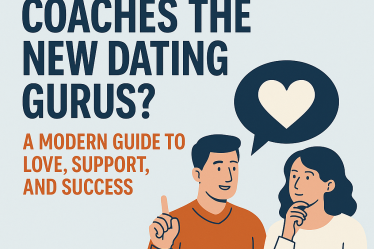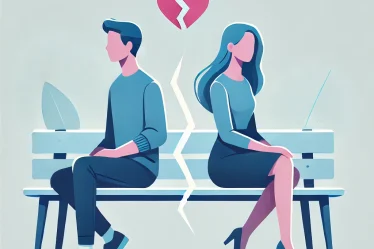
Breakups hit hard. Whether you were blindsided or saw it coming, the pain can feel overwhelming. But while time plays a role in healing, how you spend that time matters more. Experts agree: with the right mindset and strategies, you can recover faster, rebuild your confidence, and move forward without dragging your heartache for months.
This article breaks down exactly what to do—and what to avoid—so you can start feeling better, sooner.
Why Breakups Hurt So Much
There’s a reason heartbreak feels like physical pain: your brain treats emotional rejection much like a wound. When a relationship ends, your brain goes through withdrawal from the chemical cocktail it was used to—dopamine, oxytocin, serotonin. You’re not just missing the person, you’re missing the rush.
According to clinical psychologist Dr. Guy Winch, “The emotional pain of heartbreak activates the same areas of the brain as physical pain.” That’s why it feels so real, even if there’s no visible injury.
Common reactions include:
- Mood swings
- Sleep issues
- Loss of appetite
- Obsessive thinking
Understanding the biology of heartbreak helps you realize: this isn’t weakness—it’s chemistry.
How Long Does It Really Take to Get Over a Breakup?
You’ve probably heard the rule: “It takes half the length of the relationship to get over it.” But that’s not a hard truth—it’s a myth.
Real healing time varies based on:
- Length and intensity of the relationship
- Whether you were the one who ended it
- Emotional health and support system
- Level of closure (or lack of it)
A 2007 study from Binghamton University found that most people start to feel significantly better after about 11 weeks—but deeper healing often takes longer. The point? Don’t rush, but don’t wallow either. It’s a process, not a timer.
Immediate Steps to Take After a Breakup
The first few days are critical. What you do now can either stall your healing or kick-start it.
Here’s what experts recommend:
- Cut contact. No texts. No checking their social. The no-contact rule gives your brain space to reset.
- Let it out. Cry. Vent. Journal. Suppressing emotions only delays the process.
- Avoid rebounds. A quick fix won’t undo deep feelings.
- Take care of your body. Sleep, eat something decent, drink water—your emotional state is tied to your physical health.
It’s not about being perfect. It’s about stabilizing enough to think clearly.
Expert-Backed Strategies to Heal Faster
Want to actually move on and not just fake it? These are the tools therapists swear by:
- Try therapy. Cognitive Behavioral Therapy (CBT) helps you reframe thoughts and break unhealthy loops.
- Create a routine. Structure brings stability. Even small habits (like a morning walk) help regulate mood.
- Reconnect with yourself. Pick up old hobbies. Start that project you shelved. Rebuild your identity beyond the relationship.
- Move your body. Exercise releases endorphins, boosts self-esteem, and distracts from obsessive thinking.
“Breakups are an opportunity to come back to yourself,” says therapist Nedra Glover Tawwab. Use this time to rediscover what makes you feel alive.
What to Avoid If You Want to Move On Quickly
Healing fast doesn’t mean avoiding feelings—it means avoiding traps. These are the biggest ones:
- Stalking their social media — reopens the wound every time
- Overanalyzing the past — there’s no magic answer that makes it make sense
- Burying your emotions — will resurface later, usually worse
- Seeking revenge or rebound flings — keeps you tied to the past
Think of these like sugar after heartbreak: a short-term hit that wrecks you long-term.
When to Seek Help: Signs You’re Not Healing
Most people feel better with time and effort. But if your emotional state isn’t improving—or is getting worse—it might be time to talk to a professional.
Warning signs include:
- Feeling numb or depressed for weeks
- Trouble sleeping or eating consistently
- Intrusive or obsessive thoughts about your ex
- Withdrawing from friends and activities
- Trouble functioning at work or school
You don’t have to go through it alone. Therapists, support groups, and mental health apps are all valuable tools.
Resources:
- National Alliance on Mental Illness (NAMI)
- BetterHelp
- Psychology Today’s therapist finder
Moving Forward: How to Grow From the Breakup
When the pain starts to fade, the growth begins. Breakups can be turning points—if you use them well.
Use this time to:
- Reflect on what you learned about yourself
- Identify patterns or red flags you missed
- Set clearer boundaries for future relationships
- Rebuild your confidence—on your own terms
The end of a relationship isn’t the end of your story. It’s the start of a new chapter.
Final Thoughts
Breakups suck. There’s no sugarcoating it. But with expert-backed strategies, self-awareness, and a bit of time, you can move on faster—and stronger. Healing isn’t about forgetting someone. It’s about remembering yourself.
So take a deep breath. Bookmark this guide. And keep going. You’ve got this.



